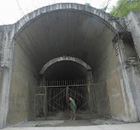Government and Policy
No country for old people
By Zhang Yuchen (China Daily)
Updated: 2010-04-14 07:11
 |
Large Medium Small |
Senior citizens are turning to illegal nursing homes as shift in traditional mores means fewer children take care of them. Zhang Yuchen reports from Harbin.
A shortfall in care services for China's elderly population is fueling a surge in unlicensed retirement homes that offer no medical assistance and are potential firetraps.
The increase in illegal homes is being seen largely in second- and third-tier cities, where places in State-run and private facilities are at a premium, experts told China Daily.
Aging residents in China are traditionally cared for by their children. However, with the changes in young people's lifestyles, including growing work pressures, more are now turning to professional services to look after their parents and grandparents.
More than 12 percent of the nation's 1.3-billion population are over the age of 60, according to official figures.
Yet officials admitted central government policies on care services for the elderly, an ever-expanding industry, are still "too vague" and can hinder businesses from entering the sector legally.
Harbin, capital of Heilongjiang province, has about 1.1 million citizens who are over 60, almost 11 percent of its total population, say city authorities. Statistics show 60,000 of them are in need of care center services.
However, the city's licensed centers have a combined capacity of just 11,000 beds, with 2,100 beds in State-funded facilities and 9,700 more in registered private homes, according to the municipal civil affairs bureau.
The lack of space, coupled with rising demand, has led to a number of cheap, illegal centers filling the gap in the market.
One of them is the Joy Family for the Aged, a 10-bed home based in a suburban apartment block that was set up by two unemployed sisters four years ago. Like many others across the city and nationwide, the living conditions are, although "homely", far from satisfactory. A small, grimy-looking dog welcomes strangers as they approach the entrance, its endless barking the only thing that drowns out the voices that blare from a television set in the communal lounge. Inside the apartment is cold, dark and dank. The windows are smudged with dirt and mold creeps along the ceiling. All three rooms have been turned into dormitories for residents, while every floor is strewn with dirty bed sheets and clothes.
"Most care homes in Harbin are run for profit, but as they generate so little revenue, owners can't afford to provide high levels of service for residents, which means most of the care is unqualified," said Shi Daqing, director of the social welfare office under the city's civil affairs bureau.
The owners of Joy Family for the Aged - a laid-off clothes factory worker named Song, 43, and her 60-year-old sister, who refer to residents as "aunts and uncles" - act as managers and nursing staff, although neither have any training or qualifications.
"Auntie" Sun, 87, has been living at the unlicensed care home since 2008. She is one of only three currently living at the center and said she is unconcerned by her living conditions. Her only thoughts are of whether her son will visit her soon.
"I used to live with my son's family but I was alone a lot of the time," she said. "If I had an accident, like falling over, or if I did something wrong with the electricity or gas, I would have been in serious danger. I chose to leave there and find a place in a home."
Before moving into her new home, Sun viewed several registered care centers across the city, including Kai Feng Elderly Home, a two-floor center with scores of beds that were cleaner and more comfortable than Joy Family for the Aged.
However, the 1,200 yuan ($175) a month rent proved just too high compared to the 500 yuan she now pays for lodgings and three meals a day.
As she is able-bodied and can largely look after herself, she does not pay the extra 200 to 400 yuan Joy Family for the Aged charges clients who need assistance walking, eating or using the toilet. However, she still has to buy medicine and wash clothes herself, and if she falls ill, the center cannot provide any medical help other than to call her family or a local professional nurse.
The cost of the center is covered by her pension and contributions from her son and daughter.
Although cheaper than a private center, with the 500 yuan Sun pays for her bed, she could afford a place in one of the city's four government-funded welfare houses. Yet with only about 500 beds each, the competition is fierce and waiting lists are long.
Covering an area of 39,000 square meters, the First Welfare Service is the largest and most in-demand residential care home in Harbin.
"The State-run homes for the elderly are always the customers' first choice when they have an option," said Yang Dewen, director of the center's political work section. "People only take places in private centers when we or other government-funded facilities have no places left."
About 90 percent of the beds at State-run care homes are taken at any one time, with waiting lists for some centers containing as many as 300 names, he said.
However, apart from those severely in need of full-time care, experts said that only elderly people with guanxi (good connections) stand a chance of getting a bed.
Sun, who failed to get a place at a State-run home, said she does not care whether Joy Family for the Aged is registered. "I am satisfied with the living conditions now," she said with a smile. "I'm happier to live here than at home where I could be in serious danger."







